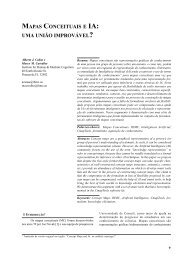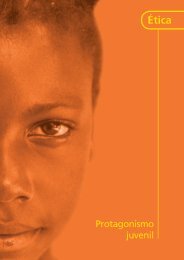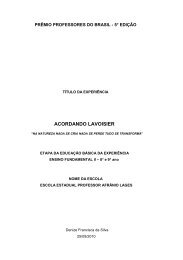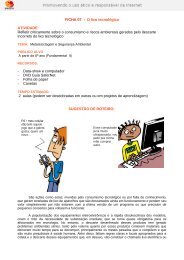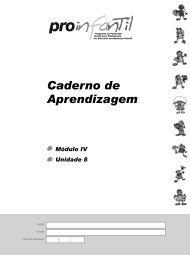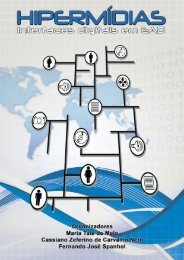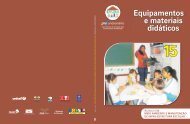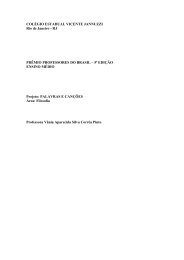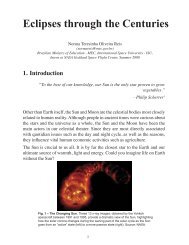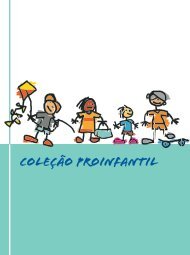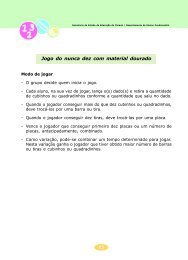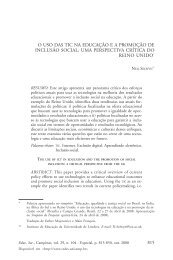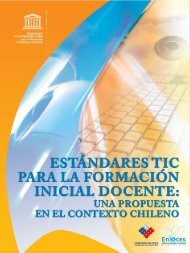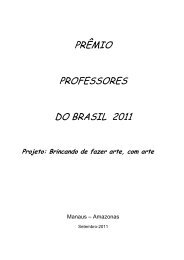BIO-CULTURAL COMMUNITY PROTOCOLS - Portal do Professor
BIO-CULTURAL COMMUNITY PROTOCOLS - Portal do Professor
BIO-CULTURAL COMMUNITY PROTOCOLS - Portal do Professor
You also want an ePaper? Increase the reach of your titles
YUMPU automatically turns print PDFs into web optimized ePapers that Google loves.
APPENDIX<br />
Raika Bio-cultural<br />
Protocol<br />
OVERVIEW<br />
This protocol specifically:<br />
• Sets out our biocultural values and explains how we,<br />
the Raika, have developed and preserved unique breeds<br />
of livestock and traditional knowledge associated with<br />
them, and how our pastoral lifestyle has developed the<br />
co-evolved ecosystem of Rajasthan’s forests which we<br />
have traditionally conserved and sustainably used;<br />
• Details our customary decision making process involved<br />
in providing free prior informed consent to any actions<br />
that relate to our grazing rights, animal genetic resources<br />
and associated traditional knowledge;<br />
• Illustrates the disastrous impacts that our exclusion from<br />
previously communal grazing areas and forests is having<br />
on our lives, livestock, genetic resources, traditional<br />
knowledge and the forest ecosystem itself;<br />
• Articulates our forest access rights and rights over our<br />
genetic resources and associated traditional knowledge<br />
under Indian law;<br />
• Calls upon the National Biodiversity Authority to:<br />
• Recognize our local breeds and associated traditional<br />
knowledge as set out in the Raika Biodiversity Register<br />
and to include it in the Peoples Biodiversity Register;<br />
• Facilitate the setting up of Biodiversity Management<br />
Committees under the local bodies (Panchayats or<br />
Municipalities) where we live and to support these<br />
Committees in ensuring the conservation and sustainable<br />
use of our breed diversity and traditional knowledge;<br />
• Strengthen in situ conservation of breeds of the Raika<br />
and include them in the BMC being initiated by<br />
the government.<br />
• Advise the Central Government and coordinate the<br />
activities of the State Biodiversity Boards to protect the<br />
customary grazing rights of the Raika so as to safeguard<br />
our traditional lifestyles that ensure the conservation<br />
and sustainable use of the our breed diversity, associated<br />
traditional knowledge and the local ecosystem;<br />
• Ensure that our prior informed consent (according to<br />
customary law) is obtained before any decision are<br />
taken that affect our traditional way of life or access is<br />
granted to our breed diversity and associated traditional<br />
knowledge for research or for commercial purposes, and<br />
further ensure that we receive a fair and equitable share<br />
of the benefits arising from the utilization of our breeds<br />
and traditional knowledge according to mutually agreed<br />
terms; and<br />
• Calls on the Secretariat of the UN Convention on Biological<br />
Diversity, specifically under Article 8(j) of the Convention,<br />
to recognize the contribution of our traditional lifestyles<br />
to the conservation and sustainable use of biological<br />
diversity in Rajasthan; and calls on the UN Food and<br />
Agriculture Organization to recognize the importance of<br />
our animal genetic resources and to recognize livestock<br />
keepers’ rights.<br />
76



